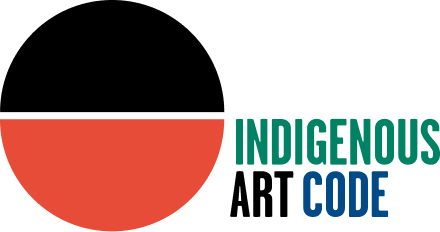A national campaign encouraging the ethical purchase of artwork by Aboriginal and Torres Strait Islander artists as a powerful and effective way to directly support artists and communities during the COVID-19 pandemic.
Our Art is Our Lifeline
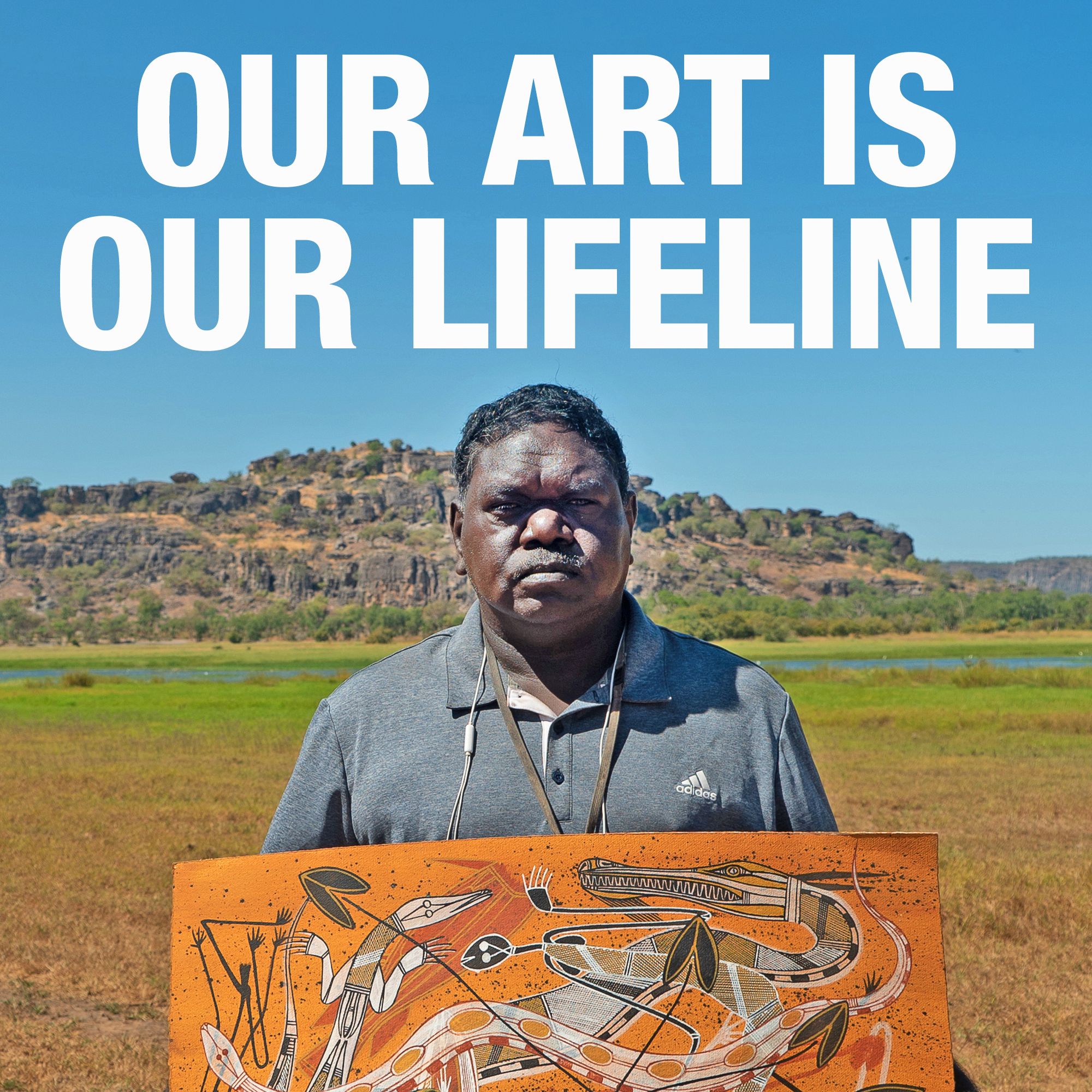
With the support of the Macquarie Group and the Australia Government’s Indigenous Visual Arts Industry Support program, in 2020 the IartC launched a national campaign to support the Indigenous art industry through the COVID-19 crisis and to promote fair and ethical purchasing of Aboriginal and Torres Strait Islander art. Including national press and outdoor advertising, social media and coverage in national media outlets, the campaign highlighted artist voices from around the country.
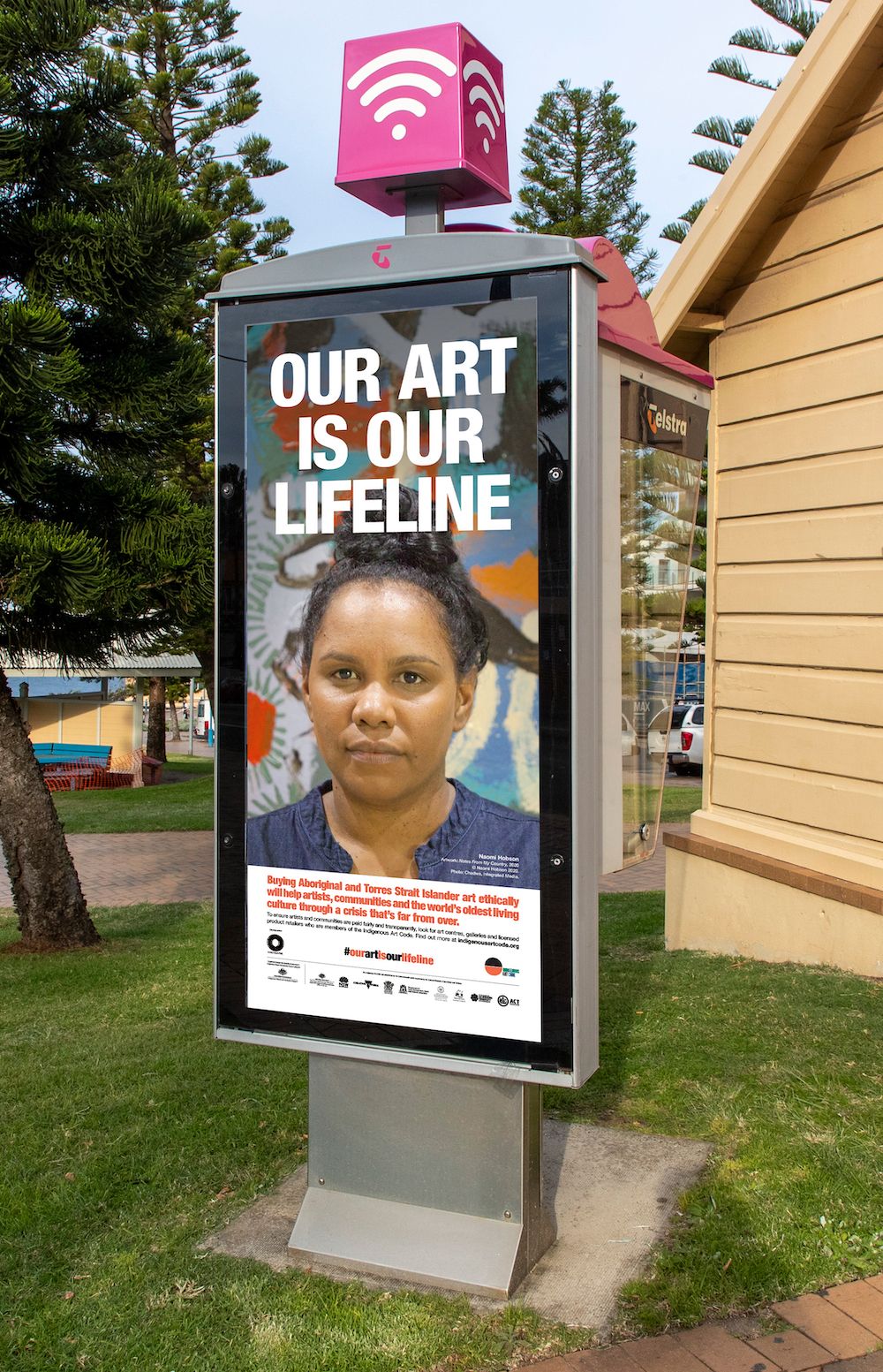
The campaign featured nine diverse artists including Jakayu Biljabu (Martu artist, WA), Dallas Brady (Adnyamathana and Yankunytjara artist, SA), Naomi Hobson (Kaantju and Umpila artist, QLD), Saretta Fielding (Wonaruah artist, NSW), Julie Gough (Trawlwoolway artist, TAS), Fiona Elisala-Mosby (Kalaw Kawaw artist, Torres Strait Islands), Mick Harding (Taungurung artist, VIC), Gabriel Maralngurra (Kunwinjku artist, NT), and Jenni Kemarre Martiniello (Arrernte artist, ACT).
2020 brought many challenges for Aboriginal and Torres Strait Islander artists and communities dependent on a precarious art market. Many major events in the visual arts calendar were cancelled or moved online. Wonaruah artist, entrepreneur and founder of Saretta Art and Design, and Malang Indigenous Corporation, Saretta Fielding describes the impact of COVID on her and her team: “COVID has knocked us around. It put a stop to a big part of our business, really quickly. We got together to brainstorm, and I said to the team, let’s reshape, move forward, and keep everyone in their jobs. ”
Saretta’s message to the broader community is this:
“If you’re looking for gifts, or are looking at doing your home up - have a look at Aboriginal artists and creatives. Look at what’s available online. That’s a way of connecting with us, and helping to keep Aboriginal businesses running.”
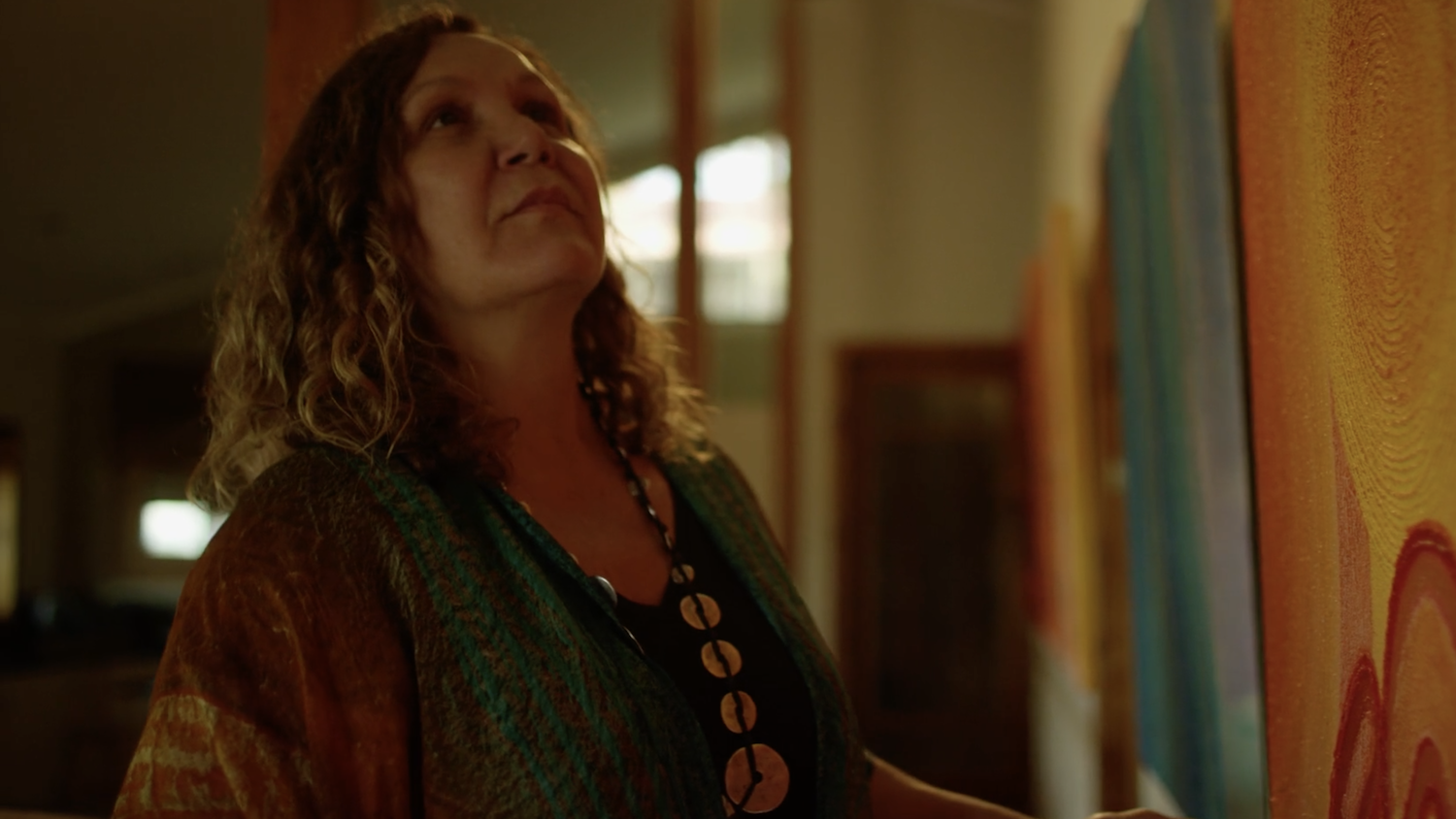
The Indigenous Art Code is committed to working with artists to ensure they are able to exercise and maintain agency in decision-making processes, which involve the sale and licensing of their artwork. The IartC also seeks to educate consumers on the right questions to ask when buying artwork to ensure artists are paid and treated fairly. Advice to consumers is to look for art centres, galleries and licensed product retailers who are members of the Indigenous Art Code.
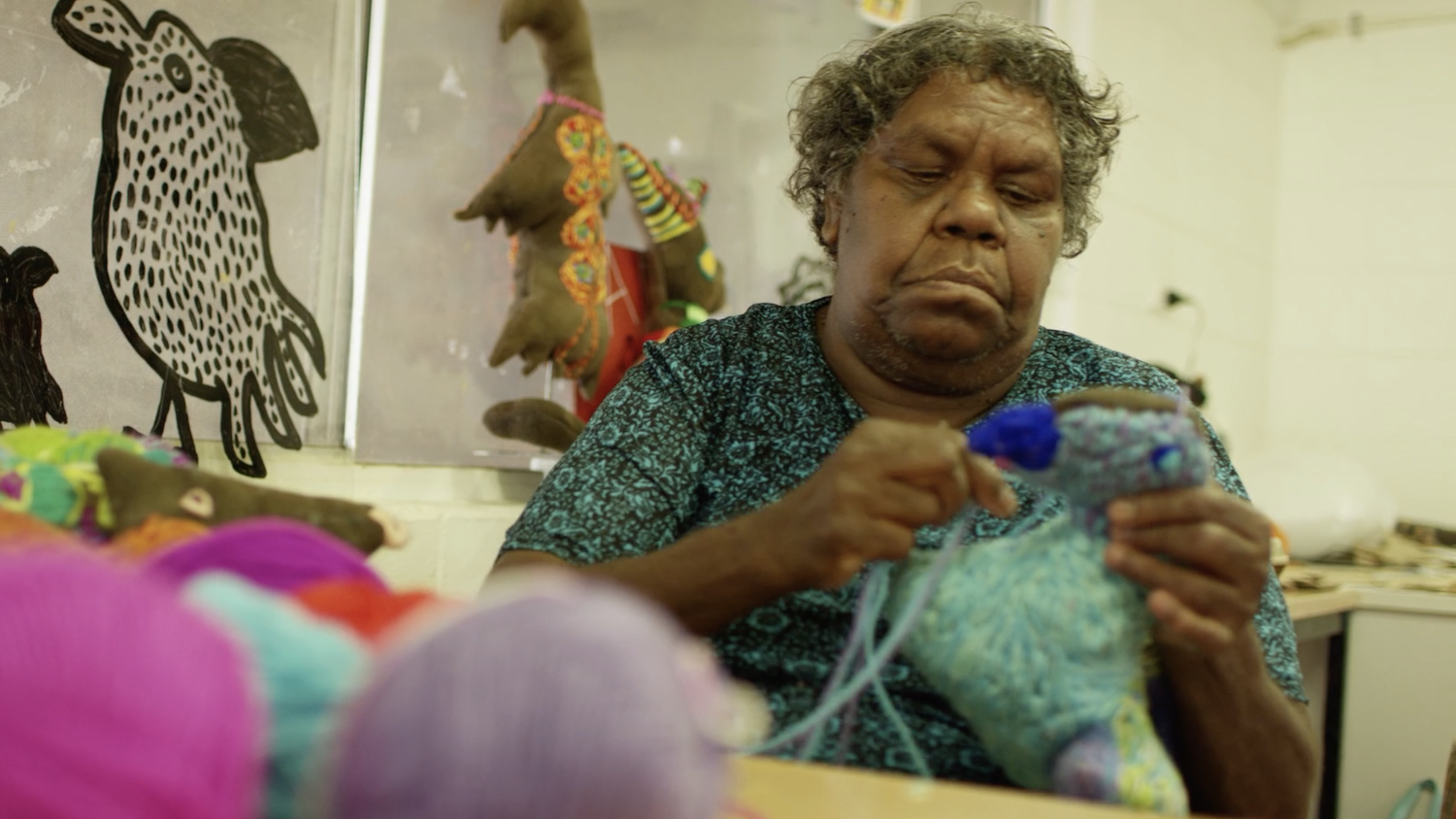
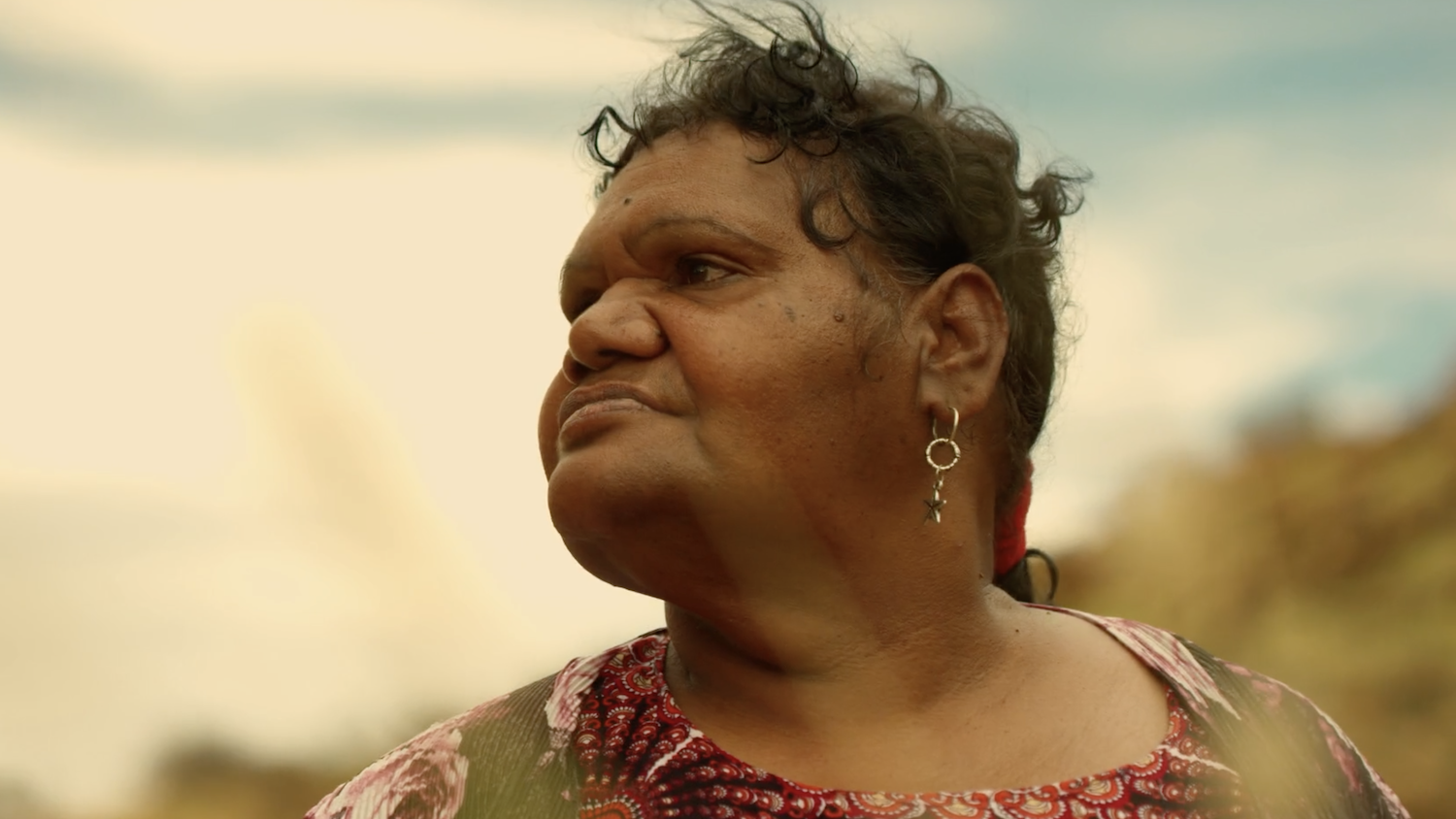
Our Art is Our Lifeline in the media
- Interview with Stephanie Parkin for Blak Matters with Kat Davidson on ABC Radio Brisbane, 16 September 2020.
- Indigenous Art Code: Campaign to encourage purchase of First Nations artworks during the pandemic on ABC Radio Canberra – Afternoons with ABC Dan Bourchier, 21 August 2020.
- Buying Indigenous art ethically in the time of the coronavirus on ABC Radio Melbourne – Afternoons with Jacinta Parsons, 19 August 2020.
- Keeping it real when buying Indigenous art in the Sydney Morning Herald, 18 August 2020.
- Interview with Saretta Fielding on ABC TV Breakfast, 17 August 2020.
- New initiative to support Indigenous artists’ lifeline during the pandemic on SBS NITV radio, 14 August 2020.
- How to ethically support First Nations artists during COVID on ArtsHub, 4 August 2020.
- New campaign promotes the ethical purchase of Indigenous art on RN Breakfast with Fran Kelly, 4 August 2020.
- Indigenous artists get creative as buyers vanish in the Australian Financial Review by Gabriella Coslovich, 31 July 2020.
- Indigenous economies have been hit by coronavirus, but online art sales offer a ray of hope in the Guardian by Paul Daley, 26 July 2020.
- Looking to buy Indigenous art? Here’s how to purchase it fairly and transparently for ABC News Online (Walking Together) by Alexis Moran, 12 May 2020.
